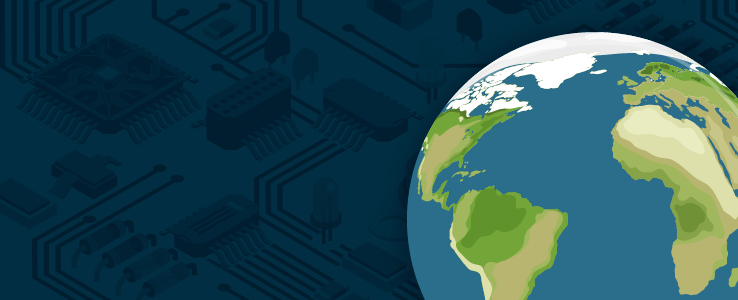A Visionary Approach to Learning , Ranjeet Sharma , a researcher specializing in educational technology, explores the transformative role of Artificial Intelligence (AI) and data analytics in personalized learning. His insights shed light on how emerging technologies are redefining traditional education models to cater to individual student needs. They are developing AI-driven adaptive learning platforms designed to tailor learning paths personalized for every student.
These intelligent systems continuously measure performance metrics and interaction data, making it possible to ascertain learning gaps through proficiency with remarkable sharpness. Besides, it incorporates spaced repetition techniques and dynamic difficulty adjustment to keep an optimum level of challenge-never too frustrating nor too easy. It will also keep it within the students' "zone of proximal development," maximizing engagement and retention.

In addition, the systems provide teachers with broad dashboards with actionable insights about school-wide trends and individual student requirements, giving them the opportunity to develop more targeted intervention and support strategies. With the progress of AI in Natural Language Processing (NLP), it is now becoming feasible for tools to read and appraise written text while pinpointing any conceptual missing links and providing feedback in real-time. This may also include assessments based on student essays or debates, approaches to solving a problem, and even involvement in automated yet very personalized evaluations of understanding.
Mechanisms that feed back using NLP are therefore complementary to understanding and can motivate students to engage with their learning materials beyond surface level. Beyond mere grammar and spelling corrections, contemporary NLP systems can also evaluate the logical coherence of arguments, identify fallacies in scientific reasoning, and suggest relevant, supplementary materials aimed specifically at each student. The semantic understanding capabilities allow these tools to recognize when students are approaching concepts from different angles, accommodating diverse thinking styles.
These AIs also track the growth of language over an extended period and can help teachers determine advancements in communication skills beyond the academic subject. They will analyze data from the whole cohort of students to note possible common misconceptions and therefore enable an informed and targeted instructional treatment in curriculum refinement. Getting an AI would allow it to have real-time feedback systems about learning hindrances and recommend measures for correction.
By constantly monitoring and processing the development of students, these tools can provide instant recommendations for fostering dynamic and interactive learning. The timely feedback would allow students to correct errors and reinforce actual retention of knowledge. AI-powered learning systems incorporate multimodal data analysis, including text, voice, and facial recognition, to assess student engagement and comprehension.
By evaluating emotional cues and response times, these technologies can identify when a student is struggling and adjust instructional strategies accordingly. This holistic approach ensures a more immersive and responsive educational experience. Reinforcement learning techniques allow AI systems to modify educational routes based on student performance.
These algorithms, by continuously adapting to the individual learning curves of the students, ultimately lead to higher knowledge retention and better mastery of subjects. The ability to personalize the sequence of learning activities would ensure that students are presented with the right level of challenge-neither too much nor too little. The shift toward edge computing has further revolutionized personalized learning.
By processing data locally rather than relying on cloud-based systems, edge computing reduces latency in adaptive learning platforms. This enhancement allows AI to deliver real-time insights and recommendations without network dependency, ensuring a seamless learning experience regardless of internet availability. As AI becomes integral to education, concerns regarding data privacy and algorithmic transparency must be addressed.
Educational institutions are implementing explainable AI models that provide clear insights into how decisions are made. By incorporating transparent algorithms and ethical AI practices, educators can ensure fairness and inclusivity in personalized learning environments. AI-driven personalized learning has shown promise in closing achievement gaps, particularly for students from diverse socioeconomic backgrounds.
By customizing learning materials to individual needs, AI enhances accessibility and provides equitable educational opportunities. These systems offer additional support for struggling students while challenging advanced learners with complex problem-solving exercises. There have been positive advancements in AI as it appears likely that this field will transform the future of personalized education.
Intelligent tutoring systems, AI-enabled diagnostics, and immersive virtual learning environments could potentially enhance the learning experience. However, it could be worth mentioning that an AI-driven education system must be balanced between automation and a human approach toward maximizing outcomes from learning. To sum it up, Ranjeet Sharma's study on AI in education describes how technology-driven learning has the potential to revolutionize education.
Teachers can now build possibilities for richer, more individual learning environments through the use of AI and analytics. The innovations expected from these will continue to grow in bringing education into the present and future for as many generations as people desire..
















